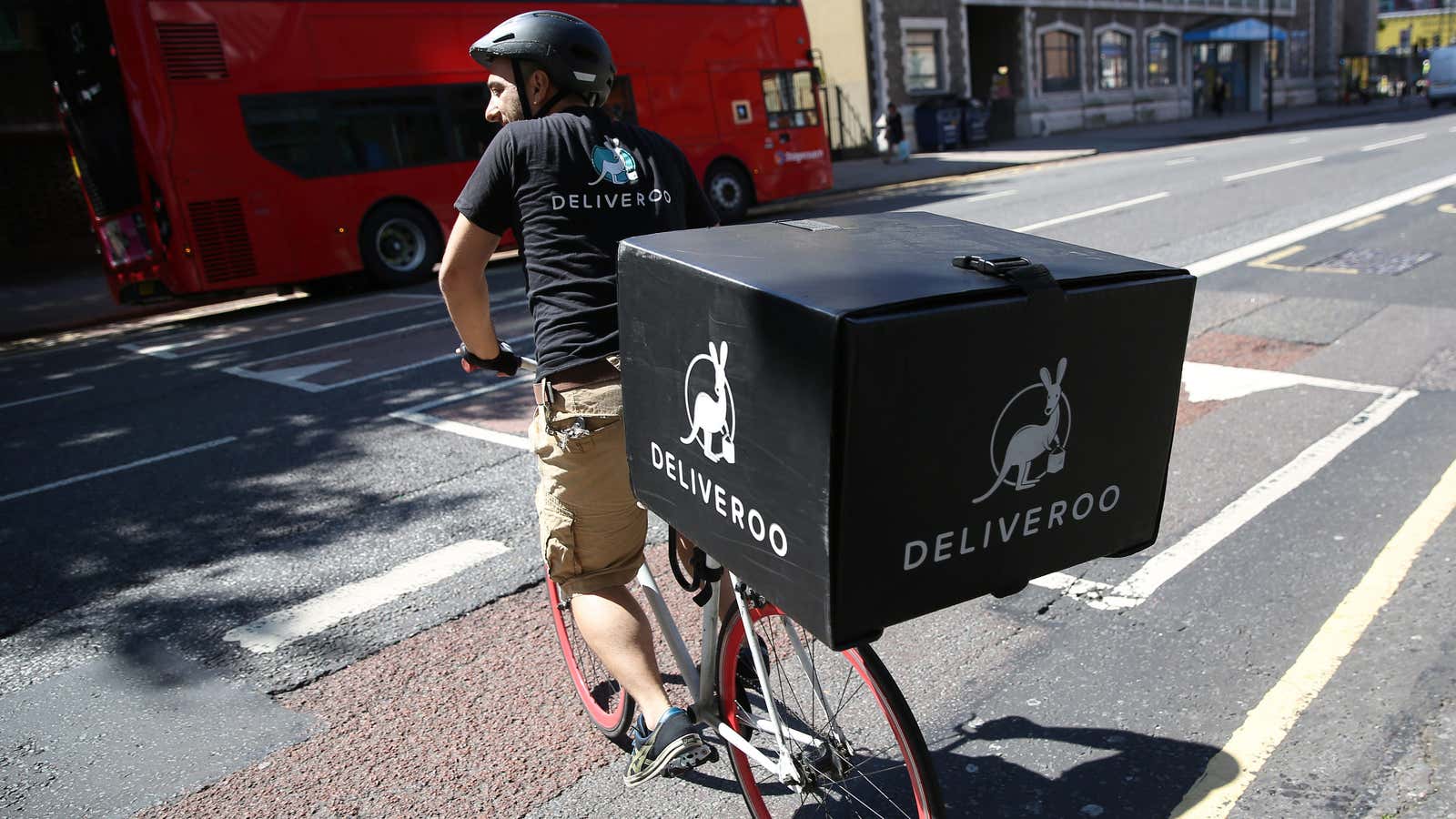Startups in the so-called “gig economy” are under fire for the way they treat their workers. Companies like Uber and Postmates say their workers are self-employed, independent contractors rather than full-time employees. With the extra flexibility also comes a lack of benefits and job security that most workers demand from large corporations, even though they are often treated like regular staff.
A recent New York Times investigation (paywall) even found that Uber is experimenting with behavioral science to lure their supposedly independent workers into working longer hours, sometimes at times and locations that are less lucrative.
To keep insisting their staff are not their staff, it’s important that these companies maintain that facade—at every level. A leaked document (paywall) outlining vocabulary guidelines from Deliveroo, a UK-based delivery service, reveals just how far companies in the shared economy go try to limit their relationship with—and responsibilities towards—their own workers.
The six pages of do’s and don’ts are meant to serve as a template for how staff should speak to and about its couriers (though it prefers to call them “independent suppliers”). For example, they want to avoid saying “We pay you every two weeks”, preferring the more obtuse passive phrase, “Rider invoices are processed fortnightly.”
The choice of words has a very real consequence for the riders who work with Deliveroo–calling them self-employed contractors rather than employees means that the company is not obliged to compensate them under British law.
In fact, 20 Deliveroo riders are starting the process of suing the company, claiming that they are wrongly classified as “self-employed” and are owed holiday pay, sick pay, and minimum wage. Their law firm is arguing that they qualify as employees because riders are required to carry out a trial shift, wear a uniform, are paid at a set rate, and are subject to performance reviews.
Now, the UK government is arguing that perhaps businesses such as Deliveroo exert too much control on their workers to continue to call them independent contractors, and has commissioned an independent review (paywall) to look into whether labor regulation needs to be updated to reflect the realities of the new shared economy.
Deliveroo chief executive Will Shu is set for a battle over these words:
It’s not for me to decide what the definition of ‘self-employment’ is. If you’re asking me do we want to give riders a level of security—not just flexibility, the answer is yes. But, we’re going to have to work with the government on deciding what ‘self-employment’ actually means.
